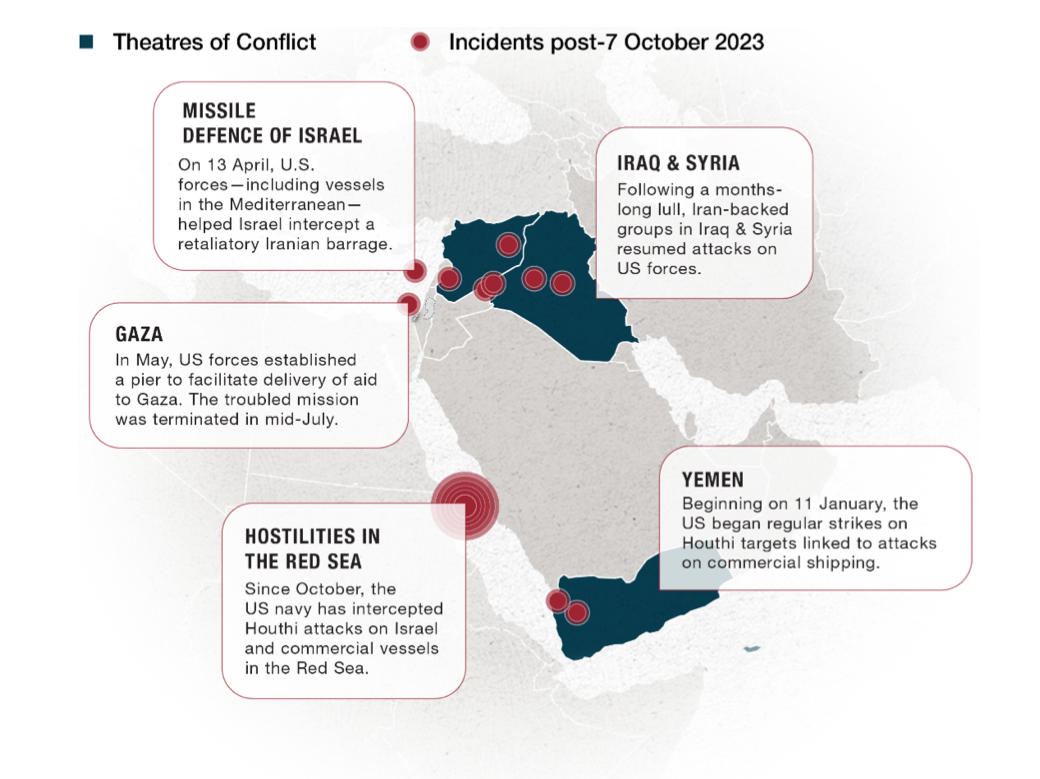Explore how the Biden administration has expanded presidential war powers since October 7, 2023, engaging in conflicts without Congressional approval and setting concerning precedents.
The Middle East has been in turmoil since Hamas attacked Israel on October 7, 2023, killing nearly 1,200 people and taking hundreds hostage. Israel’s devastating response in Gaza has fueled anger across the region, with Iran-backed groups joining the fray. Amid this crisis, the United States has pursued a complex agenda – supporting Israel while also seeking a ceasefire, protecting its own troops, and attempting to deter wider conflict.
To achieve these goals, the Biden administration has engaged U.S. armed forces in several mini-conflicts across the Middle East – all without seeking approval from Congress as is typically required. This approach has effectively expanded presidential war powers, further weakening constraints designed to prevent imprudent military action.
Key Developments:
- U.S. forces have exchanged fire with Iran-backed groups in Iraq and Syria over 170 times since October 17, 2023.
- The U.S. has conducted extensive naval and air operations against Houthi rebels in Yemen.
- U.S. military personnel were deployed to build and protect an aid pier off Gaza’s coast.
- American forces played a major role in defending Israel from an Iranian missile barrage in April 2024.
Legal Manoeuvring:
The Biden administration has employed several tactics to justify these military engagements without Congressional authorization:
- Treating each strike as a separate, brief conflict rather than an ongoing war.
- Arguing that defending pre-positioned forces doesn’t count as introducing troops into hostilities.
- Claiming statutory authority from previous war authorizations against al-Qaeda and Iraq.
These legal arguments build on and expand precedents set by previous administrations, further concentrating war powers in the executive branch.
Congressional Response:
While some lawmakers have questioned the administration’s legal justifications, Congress as a whole has failed to assert its constitutional role in matters of war and peace. Political divisions and reluctance to take difficult votes have left the legislative branch largely sidelined.
Long-Term Implications:
The erosion of checks on presidential war-making authority raises serious concerns. Without robust debate and authorization requirements, the U.S. may more easily slip into imprudent conflicts with devastating humanitarian consequences.
While immediate priorities should focus on brokering peace in Gaza and preventing regional escalation, the U.S. government must also address this dangerous imbalance of war powers over the long term. Bipartisan reform legislation previously introduced in Congress offers a promising path forward to reinforce legal guardrails against unilateral war-making.
As the world’s most powerful nation, how the United States decides to use military force has profound global implications. Repairing the system of checks and balances on war powers is crucial not just for American democracy, but for international peace and security

